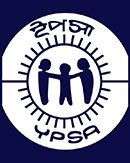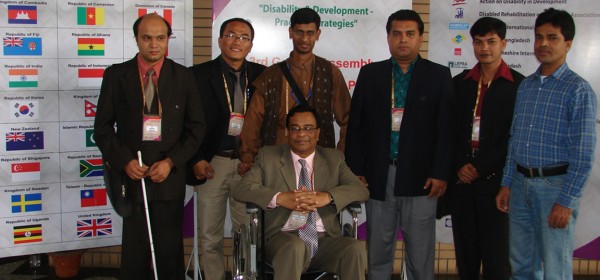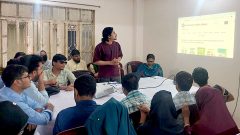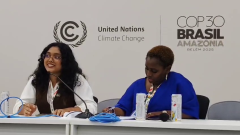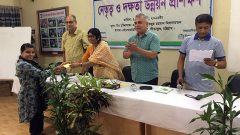YPSA participated in the Third general assembly and conference of Asia and Pacific Disability Forum (APDF).
The head of the caretaker government made the remarks while inaugurating the third general assembly and conference of Asia and Pacific Disability Forum (APDF) at Bangladesh-China Friendship Conference Centre, jointly organised by National Forum of Organisations Working with the Disabled (NFOWD) and APDF.
It is estimated that approximately 600 million people live with disabilities in the world today and two-thirds of them live in the Asia-Pacific region, Fakhruddin told the function.
Around 450 participants, 150 of them foreigners from 27 countries, are participating in the three day-long conference. The theme of the conference is ‘Disability and Development – Practical Strategies’.
Brig Gen (retd) MA Malek, special assistant to the chief adviser for social welfare ministry, Social Welfare Secretary MA Hye Howlader, Nicholas J Krafft, director of Network Operation for the Human Development Network, World Bank, and APDF Chairperson Judy Wee also spoke at the inaugural session that was presided over by NFOWD president Khandokar Zahirul Alam.
Mansur Ahmed Choudhuri, prominent disability rights activist in Bangladesh and director of Impact Foundation Bangladesh, presented the keynote paper at the function.
Persons with disabilities, local and foreign delegates, NGO leaders and distinguished personalities were present at the function.
The chief adviser said the progress so far made has undoubtedly improved the situation of the handicapped persons in Bangladesh but there is still much to do for them.
Steps should be taken on an urgent basis, including revising the Rules of Business of the government, to cater to the needs of disabled persons. Amendment to the Disability Welfare Act in line with the provisions of the UN Convention on the Rights of Persons with Disabilities is also an imperative, he told the assembly.
He urged legal experts, policymakers, development practitioners and disability activists to initiate the process of consultation with stakeholders on those issues.
“The foremost challenge for all of us at the moment is strong social and political commitment to the subject backed by administrative and legislative measures,” he observed.
He said elimination of discrimination against persons with disabilities in existing legislative and policy structures also need immediate attention. And there is also an urgent need for mainstreaming disability issues at all levels of development planning to provide equal and non-discriminatory opportunities for them.
Fakhruddin mentioned that government-NGO collaboration on catering to the needs of disabled persons in Bangladesh has a proven track record and was recognised by the United Nations Economic and Social Commission for Asia and the Pacific in 2001.
Disability issues have also been included in national poverty reduction strategy, he said.
Referring to the government’s various steps for the welfare and dignity of the disabled, he said the present government has signed and subsequently ratified the UN Convention on Rights of Persons with Disabilities shortly after taking office.
